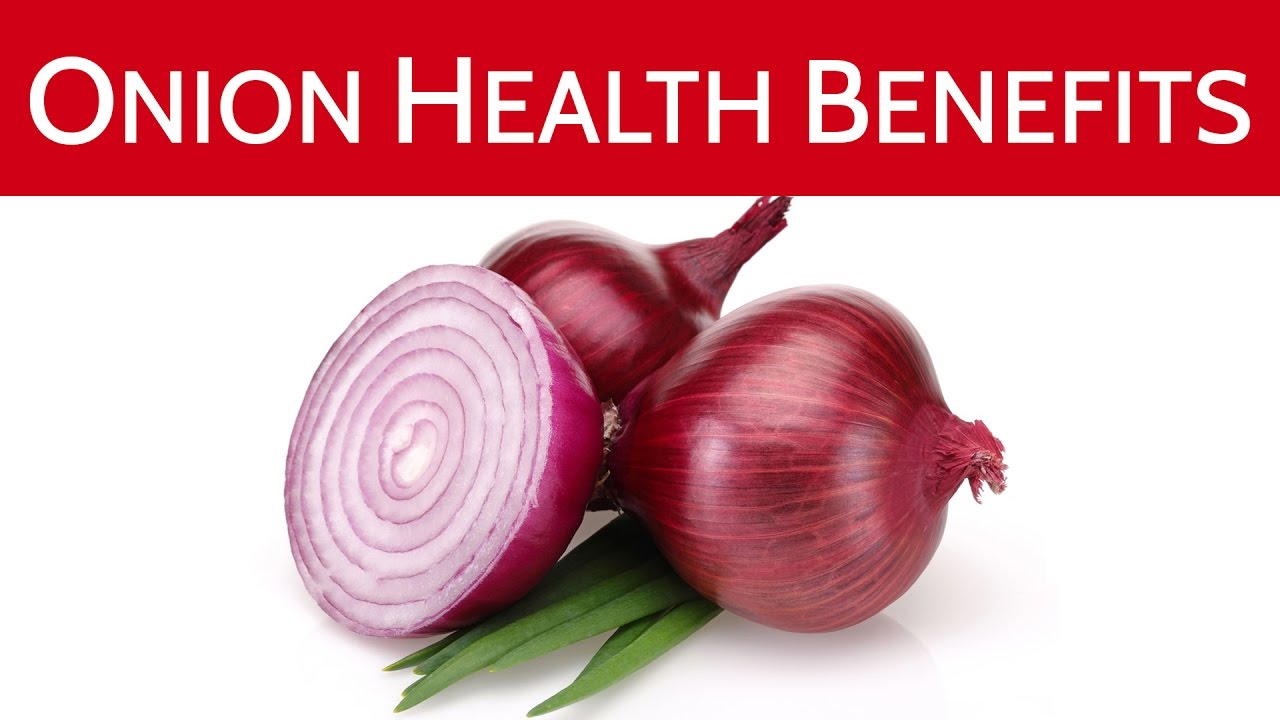There is almost no soup, gravy, or sauce that is made without onions. An onion is probably one of the few vegetables that you will see in your kitchen vegetable stock and possibly the first that anyone learns to use in the kitchen. Onions are a staple in kitchens around the world, especially in India. Indian cooking is incomplete without the use of onion. From gravy dishes to dry ones, salads, soups, meat dishes, and more, Indians use onions in the most versatile way.
The varieties of onions are endless, and the flavor it adds to your cooking is indispensable. Onions belong to the same family as leeks, shallots, scallions, garlic, and chives. Apart from their distinct flavors, onions are known for their health benefits.
Red Onion contains sulfur and antioxidants in incredibly large amounts. They have been linked to improve bone health, lower blood sugar levels, and reduce the risk of cancer.
Are onions good for you?
There are many types and varieties of onions grown in the wild, but the most popular ones used for cooking include:
- Red onions – pungent and spicy; incredible for salads, soups, gravies, and rice dishes
- White onions – crisp and sweet; best used in pizzas, burgers, sandwiches, and salads
- Sweet yellow onions – mild and sweet; fantastic for soups and stews, best work when caramelized
- Cippolini – extra sweet; best for soups and stews
- Scallions – mild and crunchier; they are great for pasta and stir-fries
- Spring onions – red, white, and sweet; perfect for garnishing
- Leeks – tender and sweet; best used in gravies
- Vidalias – sweet and crisp; best for salads and eating raw
- Pearl onions – sweet in flavor; perfect for gravy dishes, especially meat
- Shallots – pungent with a pinch of sweetness; perfect for vinaigrettes
- Ramps – a bit of gingery in flavor; best used in stews, soups, and garnishing
As you can see, there are numerous varieties of onions available, it is time that you understand why you should include onions in your daily diet. With that in mind, we have created this post to help you understand the are onions good for you? and the nutrition value, and some of the best ways to add them to your diet.
Let’s get started.
Nutrition Value of Onions
While onions add abundant flavor to a wide range of food, they are low in calories. Consider the nutrition table to know more about the nutrition in onions.
1 medium onion (150 grams) contain
PRINCIPAL NUTRIENTS
| Nutrients | Amount |
| Protein | 1 gram |
| Dietary Fiber | 3 grams |
| Carbohydrates | 11 grams |
| Calories | 45 |
| Sugars | 9 grams |
VITAMINS
| Nutrients | Amount |
| Folate | 28.5 micrograms |
| Vitamin A | 3 IU (international unit) |
| Vitamin B6 | 0.2 milligram |
| Vitamin C | 11.8 milligrams |
MINERALS
| Nutrients | Amount |
| Selenium | 0.7 microgram |
| Manganese | 0.2 microgram |
| Copper | 01. milligram |
| Zinc | 0.3 milligram |
| Potassium | 190 milligrams |
| Phosphorus | 43.5 milligrams |
| Magnesium | 15 milligrams |
| Iron | 0.31 milligram |
| Calcium | 34 milligrams |
Health Benefits of Onions
Onions are nothing to cry over. As you can see from the nutrition table, these flavorful bulbs are packed with essential minerals and nutrients. And they can be enjoyed either cooked or raw. Onions are super healthy and health experts across the globe recommend adding it to your diet. They are excellent sources of phytochemicals, flavonoids, sulfuric compounds, and vitamin C. The following are the potential health benefits of onions that you must consider.
#1 Onions can help boost the digestive health
Onions are one of the few vegetables that have prebiotics and fiber in abundance. These are essential components for the optimal health of your gut. Prebiotics in onions is broken down by the good bacteria in your intestine and create short-chain fatty acids, such as butyrate, propionate, and acetate. According to studies, short-chain fatty acids are responsible for strengthening the gut health, enhance digestion, reduce inflammation in the stomach, and ultimately boost immunity. As per the experts, foods rich in prebiotics aids the digestive health and may help improve the absorption of essential minerals like calcium and iron that can help enhance the production of red blood cells as well as improve bone health.
#2 Onions have antibacterial properties
Research shows that onions can fight potentially dangerous bacteria like Bacillus Cereus, Staphylococcus Aureus (S. aureus), Pseudomonas Aeruginosa, and Escherichia Coli (E. coli).
The antibacterial properties in onion prevent the growth of bacteria inside our bodies. A recent study found that the antibacterial properties in onion can inhibit the growth of Vibrio Cholerae, which is a significant health concern in the third-world countries.
Onions contain a compound called quercetin, which boasts powerful properties to kill bacteria. A study demonstrated that quercetin extracted from onion successfully prevented the growth of Methicillin-resistant Staphylococcus Aureus (MRSA) and Helicobacter pylori (H. pylori).
MRSA is known as antibiotic-resistant bacteria that can infect different organs and parts of the body. H. pylori, on the other hand, is associated with stomach ulcers, as well as stomach cancers.
In conclusion, adding onions in your diet can help you fight bacterial infections.
#3 Onions may boost bone density
Onions have been associated with boosting bone density and strength. An experiment conducted on postmenopausal and middle-aged women found that they had improved antioxidant activity and bone mineral density after consuming 100 milliliters of onion juice for eight weeks daily.
Onions are a rich source of vitamin C mineral, which plays a crucial role in enhancing bone strength. Since onions are rich in prebiotics, it helps your gut to absorb essential minerals like calcium, which is essential for bone health.
Those suffering from joint pain and chronic diseases like osteoporosis and arthritis are advised to include onions in their daily diet as onions can help reduce oxidative stress, decrease bone loss, and boost antioxidant levels, which may boost bone loss and prevent osteoporosis.
#4 Onions can help maintain blood sugar levels
Compounds like sulfur and quercetin are known to boast anti-diabetic effects. Onions contain these two compounds in abundance. Thus, consuming onions on a daily basis can help you control your blood sugar levels to a great extent.
A study found that 42 people who have type-2 diabetes had their fasting blood sugar levels reduced by about 40 mg/dl four hours after eating 100 grams of fresh red onions.
The sulfur and quercetin content in onions interact with cells in the liver, fat tissue, skeletal muscle, pancreas, and small intestine to control the overall body sugar regulation. According to health experts, people with type-2 diabetes can experience lower glycemic levels and normalized liver enzymes if they eat sliced raw onions.
#5 Red Onions contain cancer-fighting components
According to several studies, eating 1-7 servings of onions every week may help you lower the risk of ovarian, laryngeal, and colorectal cancer. On the other hand, eating numerous servings of red onions in a day may help reduce the risk of esophageal and oral cancer.
As per the health experts, quercetin found in onions boasts anti-cancer properties that can inhibit cancer cells in lung, endometrial, ovarian, prostate, colon, and breast tumors.
Don’t forget that onions are very high in antioxidants that help kill cancer-causing cells by removing free radicals from the body. Many studies claim that the antioxidants present in onions can help lessen the side effects that occur from cancer treatments.
#6 Onions can boost the immune system health
The polyphenols in onions act as antioxidants that protect the body against free radicals. When your immune system is strong and healthy, it protects your body against external viruses and microorganisms trying to enter the body. That means conditions like cold, flu, etc. will be kept at bay.
On the other hand, when we talk about a healthy immune system, it means that you have a properly functioning digestive system. Your gut health and immune system are directly related to each other. If your gut is healthy, it makes way for a strong immune system.
As per the University of Maryland Medical Center, antioxidants and quercetin in onions help reduce allergic reactions by inhibiting your body from making histamines. Histamines are responsible for making you itch, cry, and sneeze if you have an allergic reaction.
#7 Onions may help lower cholesterol
Good news for heart patients! Eating onions may reduce the risk of cardiovascular diseases. A study conducted among a group of participants found that eating onions might be useful for your heart and weight. The participants were divided into two groups. One group was put in a high onion diet, while the other was put in a low onion diet. After eight weeks of study, it was found that the participants had their cholesterol levels reduced. However, the ones who were on a high onion diet reaped the most benefit, as their cholesterol level was much lower and healthier.
Another study found that drinking onion juice or eating raw onion daily can help lower the levels of bad LDL cholesterol in your body, as well as reduce your waist size.
The high amounts of chromium and antioxidants present in onion help the arteries to pump blood thoroughly from the heart and to all parts of the body. These components make sure that your arteries and blood vessels are properly transporting blood while removing any cholesterol buildup on their walls. This ensures proper and healthy functioning of the heart.
#8 Onions for weight loss
As there are proofs that show onions help with the digestive health, experts believe that it can largely help those who are trying to lose weight. With proper gut functioning and digestion of food, you won’t feel constipated.
The antioxidants in onions help in the proper digestion of food. When you have regular and healthy bowel movements, your body will release excess toxins. The antioxidants also help in cutting down fat from the body.
So, adding onions to your weight loss diet can help boost the process.
What are the Best Ways to Add Onions to your Diet?
Now that you know onions are packed with nutrients and boast plenty of health benefits, let’s focus on the best and healthy ways to eat onions.
- Onion Soup: chop 2-4 large onions, sauté in coconut or olive oil until soft, add vegetable stock or chicken broth and simmer for 15 minutes. Serve hot. You can also add some fresh coriander leaves or Swiss cheese to garnish.
- Baked Fish: sauté sliced red onions until tender. Spread the caramelized onions in the bottom of the baking pan, and put fish (your preferred fish) fillets on top. Cover the pan and bake for an hour at 160°C until the fish is opaque. You can also add some white wine for added flavor.
- Roasted Meat: you can stir quartered white onions or shallots into the roasting pan with chicken or lamb.
- Salad Dressing: make the easy salad dressing by whirling shallots, thyme, mustard, white wine vinegar, and olive oil in a food processor.
- Baking: when mixing up batter for bread or scones, put some chopped green onion along with the herbs.
- Fresh Salsa: combine freshly chopped tomatoes, cucumbers, onions, bell peppers and, coriander with lime juice.
There are plenty of other ways you can include onions in your diet. But these are the easiest ones to make at home.
Final Words
Onions are a great source of all the necessary nutrients and vitamins required by our body. Onions are not only flavorful but also come with many health benefits. Doctors and health experts recommend adding onions to your daily diet as components like antioxidants, vitamin C, sulfur, etc. make the vegetable a boon for the health. From reducing the risk of cancer to regulating blood sugar levels in diabetic patients, aiding digestive health, and taking care of your heart, an onion is a superfood that you must include in your daily diet.



